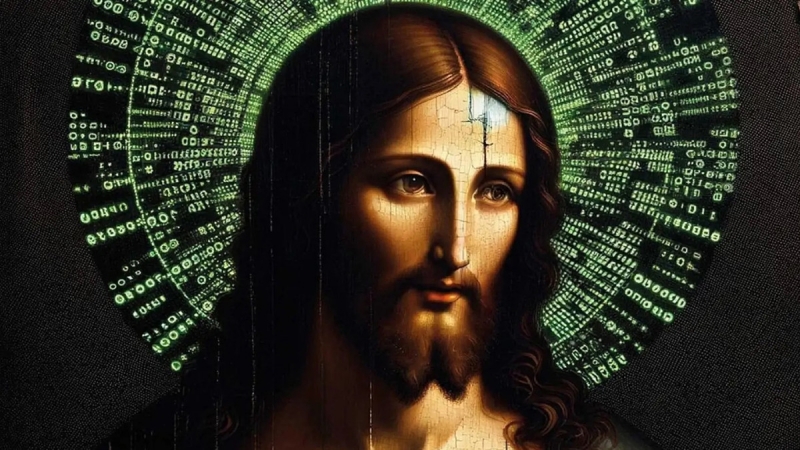
Confession will be possible in front of an AI copy of Jesus/NZZ
The unique art project “Deus in Machina” (God in the Machine) in St. Peter's Church in Lucerne has opened up new horizons of spiritual experience. Thanks to innovative technologies, believers can directly communicate with a hologram of Jesus Christ created on the basis of artificial intelligence.
The project has caused a wide resonance among local and international visitors, and the Daily Mail reports on significant interest in this installation.
How AI Jesus works
Christ AI is an advanced chatbot created by a team of computer scientists and theologians from the Lucerne University of Applied Sciences and Arts. His “personality” was learned from the New Testament and religious content from the Internet.
- Visualization: the face of Jesus is projected onto a screen in the confessional, behind which the visitor sits. The image is synchronized with the speech, the animation creates the impression of a “live” interlocutor.
- Language support: AI speaks 100 languages, which makes it accessible to the many tourists who visit Lucerne.
- Security: Before the interaction begins, the avatar warns: “Under no circumstances should you disclose personal information, use this service at your own risk.” Believers can ask any questions, and artificial intelligence answers using knowledge of theology and context from the New Testament. In Switzerland, you can confess to an AI version of Jesus: watch the video.
Reactions to the project are divided
Supporters note the spiritual value of the experience. One of the believers said: “I was surprised, it was so simple, and even though it is a machine, it gave me so many tips.”
200% Deposit Bonus up to €3,000 180% First Deposit Bonus up to $20,000At least two-thirds of visitors reported having a “spiritual” experience while interacting with the hologram. Another visitor mentioned that the AI helped him answer questions about Scripture and confirmed his beliefs.
I was asking about the spiral of violence, how to break it. The answer: prayer, not seeking retribution,
– he noted.Skeptics call the avatar a “trick”, and his answers are too universal.
Technical and ethical nuances
AI Jesus has undergone extensive testing to ensure it meets the core theological positions of St. Peter's Chapel. However, its creators have acknowledged that an early version based on ChatGPT-4 had some data protection issues, which is why the system has been modified for public use.
Some critics have expressed concerns about the influence of American content, which could create an “evangelical” emphasis in the responses, but the developers deny this.
The future of innovation in religion
Despite the temporary nature of the installation, St. Peter's Church believes that such projects can become part of spiritual life. Chatbots, they believe, will be able to take on some of the responsibilities of pastors in the future.
The “Deus in Machina” project will last until the end of November, but its impact is already reaching beyond Lucerne. And although some believers have even left ominous reviews, such as warnings of “consequences,” the innovation opens up new opportunities for the interaction of science and religion.
>

